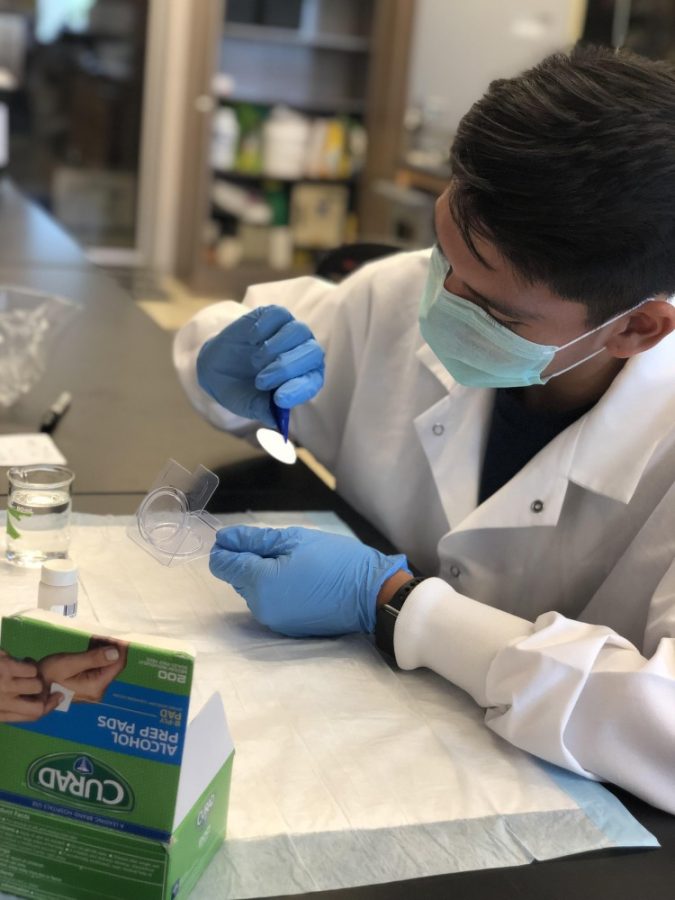Last week, people around the world sat down at their computers and typed in the words “beer” and “virus,” perhaps wondering if there was some correlation between the deadly coronavirus recently discovered in Wuhan, China, and Corona, the overpriced Mexican lager. It is important to remember at times like these that people have also gone to the moon and invented chess — the rich tapestry of human life! It is also a good time to remember that this wouldn’t be the first popular misconception about health. Here are some other pop health fallacies from the Wildcat editorial board:
Mikayla Kaber
Myth: Detox diets are the “one-stop” cure-all to the various toxins and health problems that people experience.
There is not one detox diet that is going to quickly fix all of the issues that everyone goes through. People are constantly trying to cut corners in order to be healthy when really all it takes are a few daily changes to diet and exercise. There is no quick fix to being healthy. It’s about eating healthy and wholesome foods, getting enough sleep and regular exercise. Long-term changes and getting some sun every once in a while can do wonders for the body. Short-term diets are a fad that will hopefully pass. Small but meaningful changes can help people start to feel more alert and healthier. Try reducing screen time toward the end of the day or eating more fruits and vegetables with meals. Do what works for you. Take care of yourself.
Jake Toole
Myth: Cracking your knuckles can give you arthritis.
When I was in the fifth grade, I had a substitute teacher who yelled at one of my classmates for cracking his knuckles. He then continued to berate that student, telling him how unhealthy it is and that he used to “pop” his knuckles when he was kid and that is why he now has arthritis.
That substitute teacher’s speech impacted me, as I then never cracked my knuckles for fear of getting arthritis later in life. However, I later learned this statement is false.
According to WebMD, cracking one’s knuckles does not cause to arthritis.
According to Harvard Health, cracking your knuckles too often could lead to a decrease in grip strength in your fingers, and there have been a few cases of injuries logged, but never in connection with arthritis.
RELATED: What to do on your first week back to school
Amit Syal
Myth: A productive day requires a good, hefty breakfast.
Everyone has heard the adage “breakfast is the most important meal of the day” at least once. But how accurate is this? Recently, the craze has revolved around fasting diets, such as intermittent fasting, which involves eating all of your food during an allotted time frame and then not eating any food for the rest of the day. Studies have shown that intermittent fasting can increase insulin sensitivity and reduce the risk of type 2 diabetes, which affects 90-95% of Americans diagnosed with diabetes. When you skip breakfast and extend your fasting period, your body is forced to tap into your storage of fats. This causes increased fat loss and, when done regularly, can aid in weight loss and increasing insulin sensitivity. So maybe skipping breakfast isn’t so bad after all.
Eric Wise
Myth: The five-second rule
When I was growing up, my neighborhood friends would follow the five-second rule with the food they might’ve dropped. I was always disgusted by this, and I don’t think it takes a lot of explanation to understand why that rule makes no sense. Of course food picks up junk when it hits the ground — we don’t need to dig up research to figure that out on our own. You might not get sick if you tested it yourself, but I’d like to see you drop a sandwich in your bedroom and pick it back up for another bite.
Those who abide by the five-second rule might say it depends on the ground it drops onto or whether the food is worth it, but I believe they’re just very hungry all the time. If you’re still following the five-second rule, please consider breaking it for your health and for your social standing. You don’t want to be known as the person who eats food off the ground.
Amber Soland
Myth: Windex, the wonder remedy.
I’m a big proponent of melding modern medicine with natural remedies, but you have to do it right. You shouldn’t take ibuprofen for every ache and pain the universe thrusts on you, but you wouldn’t use lavender to cure cancer.
Windex is one of those supposed wonder chemicals that can cure anything and everything, but that really isn’t the case. My nana, bless her soul, used to use Windex as a cure for everything (a la “My Big Fat Greek Wedding”). Mosquito bites, rashes, warts — you name it. Now, I wouldn’t exactly call Windex a “cure all,” but there is a reason it holds some merit. Windex does contain rubbing alcohol and ammonium hydroxide, which dry the skin enough to reduce the itchiness of a mosquito bite, dry a poison ivy rash and could get rid of a wart with some hope and effort. Remember, though, that Windex is a glass cleaner and too much of it or the misinformed application of it can be hazardous. It should go without saying that Windex shouldn’t be used to clean small wounds the same way rubbing alcohol is — and it certainly doesn’t fix acne.









